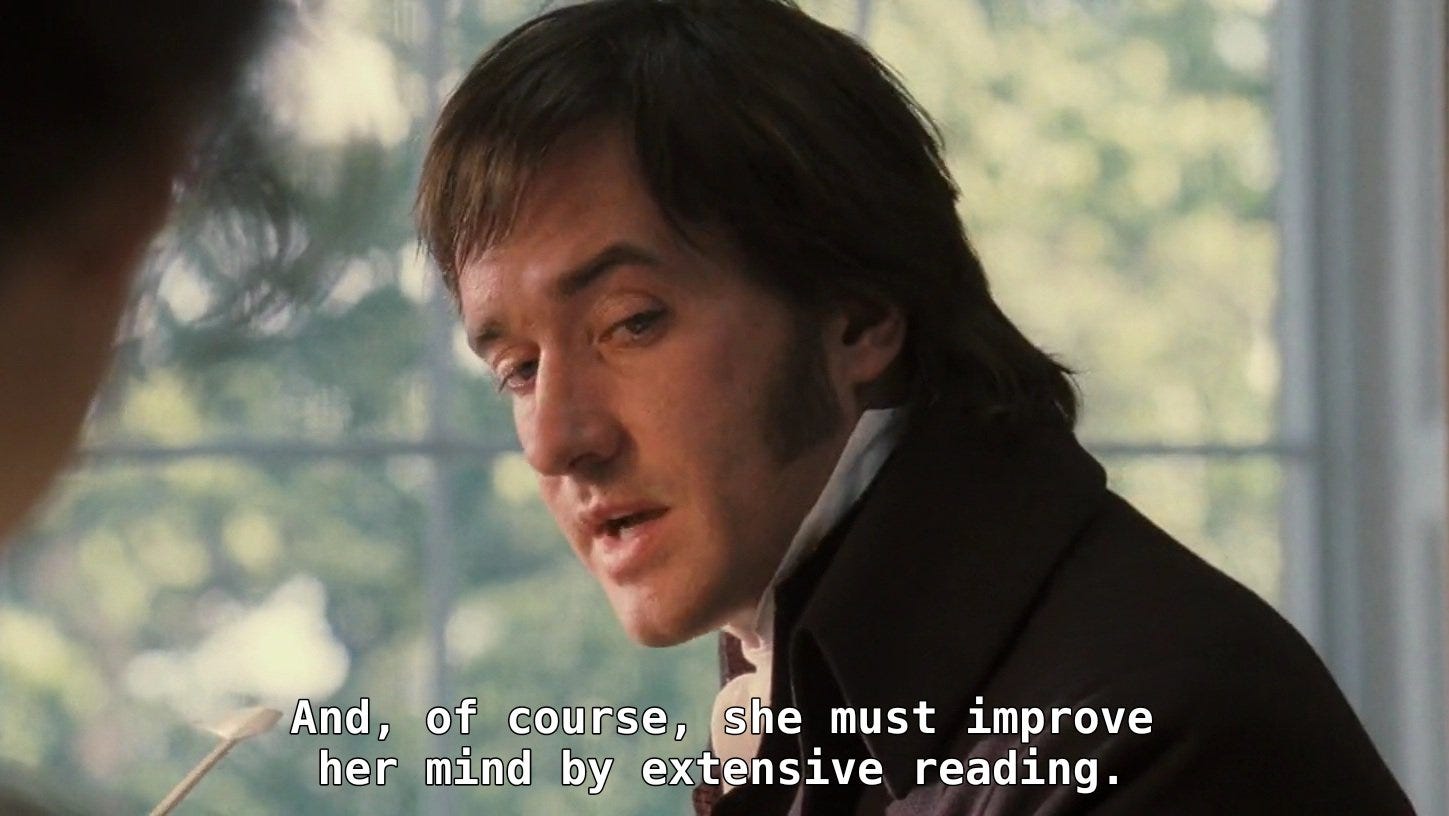Making Conversation
On Jane Austen & leaving things unsaid
Good morning.
This newsletter has existed for a few months, which means I’m overdue to write about Jane Austen.
I don’t remember reading Pride and Prejudice for the first time. I assume it happened during my early homeschooling days, around twelve or thirteen, when I was making m…
Keep reading with a 7-day free trial
Subscribe to The Country of the Story to keep reading this post and get 7 days of free access to the full post archives.

